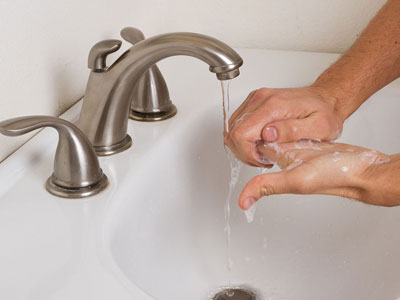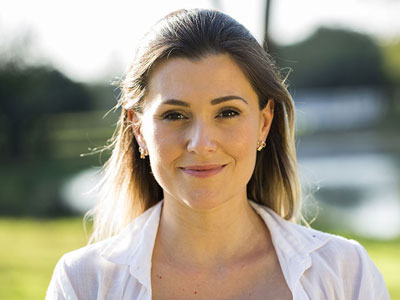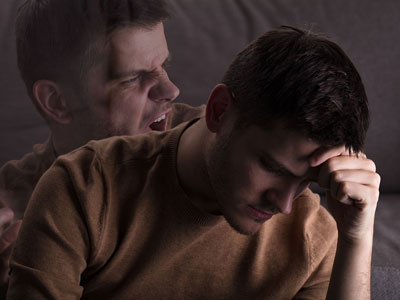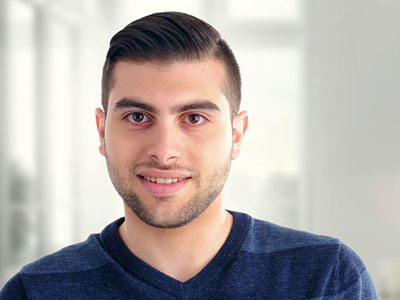According to the National Institute of Mental Health, approximately one-third of adults and adolescents in the United States will experience an anxiety disorder in their lifetime. Of these individuals, only 36.9% receive treatment for their condition. Maybe they don’t know if anxiety can be treated, how it’s treated, if it’s curable or how to live with it. In fact, anxiety disorders are very treatable, and receiving anxiety treatment at FHE Health in Florida can help you to return to a fully functioning life.
Types of Anxiety Disorders
Anxiety disorders are a group of mental health conditions with one thing in common: excessive, persistent fear or distress that interferes with daily life. The main types of anxiety disorders are:
- Generalized anxiety disorder (GAD). Multiple ongoing, overwhelming worries about everyday activities or life events that feel too difficult to control
- Panic disorder. Sudden attacks of intense physical and psychological symptoms, often accompanied by fears of dying, losing control or experiencing more attacks
- Agoraphobia. Extreme fear and avoidance of places or situations where it might be difficult to escape or get help if something goes wrong
- Social anxiety disorder. Debilitating self-consciousness in social settings driven by fears of being embarrassed, judged or rejected by others
- Specific phobias. Powerful, irrational fears of generally harmless objects or situations, resulting in avoidance and significant emotional or physical distress
Anxiety disorders share common symptoms with other related conditions, including obsessive-compulsive disorder (OCD) and post-traumatic stress disorder (PTSD).
Treatments for Anxiety
Anxiety disorder is the most common mental health condition in the United States and worldwide. Without treatment, anxiety disorders increase a person’s risk of developing depression and substance use disorders and raise the likelihood of suicidal thoughts and behaviors. At FHE Health, we offer a variety of individualized therapies and treatments for anxiety.
Counseling
While you can’t talk yourself out of an anxiety disorder, you may benefit from psychiatric counseling to learn how to manage daily symptoms. Coping mechanisms can help you minimize symptom occurrence, intensity and frequency.
Cognitive Behavioral Therapy
Cognitive behavioral therapy (CBT) is one of the most effective forms of psychotherapy used in anxiety disorder treatment. With the help of an FHE therapist, you can develop skills to improve anxiety symptoms, avoid triggers and manage anxiety-provoking situations.
Exposure Therapy
This therapy involves confronting your fears through repeated exposure attempts. Our compassionate therapists help you safely and gradually face fears in a controlled environment. As you become more comfortable, you can better cope with previously distressing situations.
Medical Integration
At FHE Health, we perform a full medical workup when diagnosing and developing a treatment plan for anxiety. This integrated medical care ensures symptoms aren’t caused by other undiagnosed conditions. The workup includes a psychological evaluation, physical exam and blood or lab tests. This helps us better understand what needs to be treated and what is anxiety or perhaps something physical.
Medication Options for Anxiety Treatment
When anxiety makes everyday living and functioning difficult, your FHE care team may prescribe medication to help ease symptoms such as muscle tension, irritability, restlessness and insomnia.
Medication is often prescribed along with counseling so you can focus on being an active participant in getting to the underlying cause of your anxiety. When we do prescribe medication, it begins with a starter dose and is gradually increased as needed. Using medication in low doses or short-term helps prevent overuse, dependence and potential addiction.
Types of Medication for Anxiety Treatment
Three medication types are typically prescribed for managing anxiety symptoms:
- Antidepressants. Selective serotonin reuptake inhibitors (SSRIs) such as Zoloft and Paxil are antidepressants also used to treat anxiety. SSRIs may need to be taken for a few weeks before symptoms begin to subside.
- Antianxiety medications. An antianxiety medication such as Buspirone is sometimes prescribed to treat specific anxiety disorders, including GAD. While there are a few side effects (nausea, headaches and dizziness), these mostly occur at the start of taking the medication. It generally takes a couple of weeks for the medication to be effective.
- Benzodiazepines. Benzodiazepines such as Valium and Xanax are often prescribed to treat GAD. However, due to their high dependence and abuse potential, benzodiazepines are usually only prescribed for short-term use.
What Are Natural Options for Anxiety Treatment?
Along with counseling and medication, alternative treatments are often used to improve mental health conditions. Staff at our FHE center in Florida can guide you on natural therapy options to help with anxiety, including:
Meditation
Anxiety causes the mind to race, replaying endless sequences of troubling thoughts. Meditation helps calm the mind, reducing the obsessive cycle of negative thinking. A recent study concluded mindfulness programs were effective at reducing stress, anxiety and depression while also improving sleep quality and life satisfaction.
Breathing Exercises
Breathwork therapy can help reduce the hyperventilation that often occurs with severe anxiety, panic attacks or panic disorder. Learning to modulate breathing with deep breathing exercises also helps calm the body and mind. The exercises are easy to do and don’t require a lot of time.
Yoga
Practicing yoga may help reduce anxiety by modulating the body’s stress response systems. Scientific evidence shows the practice offers a multitude of benefits to improve mental and physical health.
Acupuncture
Acupuncture, an ancient practice involving the insertion of fine needles into body pressure points, has shown some promise in improving Generalized Anxiety Disorder (GAD) symptoms. This benefit has been observed even in individuals whose anxiety previously failed to respond to medication and psychotherapy. Acupuncture is a safe, natural option that may be incorporated into your anxiety treatment plan at our Florida rehab center.
Can Anxiety Disorder Be Cured?
Anxiety disorder can be effectively managed, yet there is currently no absolute cure. Given exposure to certain highly stressful triggers or situations where previous anxiety attacks have occurred, the troubling and immobilizing symptoms may return. The best defense to help defuse and lessen the likelihood of debilitating anxiety disorder events is professional treatment, learning effective coping techniques, taking appropriately prescribed medication, and receiving ongoing support through counseling and participation in anxiety support groups.
Living With an Anxiety Disorder
Learning you have an anxiety disorder may be upsetting at first, although it likely isn’t a complete shock. Bothersome symptoms and serious life disruptions due to this mental health condition have probably been ongoing. You don’t have to feel this way. Our Florida location is ready to help, 24 hours a day, 365 days a year.
At FHE Health, we offer a proactive and effective approach focused on adopting a positive mindset, following all treatment recommendations and enlisting the support of loved ones and family members. Our treatments for anxiety in Florida can also help you learn how to manage chronic stress, which may cause symptoms to resurface even after treatment concludes.
Tools to Help You Live Your Best Life With This Diagnosis
You can boost your ability to confidently live your best life by using the following tools:
- Educate yourself. Learn everything you can about anxiety disorder through reputable websites, including the National Institute of Mental Health (NIMH), Anxiety and Depression Association of America (ADAA), National Alliance on Mental Illness (NAMI) and Mental Health America (MHA), among others. Talk with an FHE mental health provider about appropriate treatments or concerns.
- Journal. Writing down your thoughts, even quick observations, can be a valuable tool to indicate when you’re experiencing stress or triggers. Journaling can also help you track which calming methods seem to work best.
- Stick to your anxiety treatment. Overcoming anxiety disorder takes time. It also requires commitment and sticking to the treatment plan you’ve been prescribed. Stay on track with the medications your doctor prescribes, and participate in counseling and other therapies as scheduled.
- Join a support group. Interacting with others going through the same experience is beneficial in managing an anxiety disorder. FHE support group meetings are usually held in our Florida rehab center or public community spaces. Other anxiety support groups meet online. Led by a professional therapist, meetings may include topic discussions, working through book chapters and CBT sessions, as well as social events and outings on occasion.
- Spend time socializing. Make time to relax and socialize with loved ones and family members. Healthy interactions like these ensure you’re not isolating yourself and obsessing about your anxiety.
- Practice coping methods. Once you recognize a trigger or begin to experience symptoms of anxiety, put the coping methods you learned during treatment into practice. This will help you feel more in control of your anxiety and give you the confidence to get through the episode.
- Manage your time. Anxiety disorder treatments at our Florida center also focus on teaching you how to manage time more effectively. These techniques can reduce stressful situations where you have to rush to get things done. Better time management can also help boost energy, since you’re not wasting it needlessly.
What Lifestyle Changes Can Help You Live With Anxiety?
Although many people diagnosed with an anxiety disorder require therapy and medication to manage the condition, most individuals also benefit from making lifestyle changes that complement treatment. If you’ve been diagnosed with anxiety, our staff at FHE can provide encouragement and guidance to make positive changes.
Eat Healthy
Did you know a poor diet is linked to mental health conditions such as anxiety and depression? The connection between the brain and digestive tract is only now being thoroughly understood. A diet high in sugar and low in proper nutrients, for instance, can lead to excessive growth of bad bacteria in the gut. This can cause inflammation, feelings of sluggishness and weight gain. The nerves in the digestive tract communicate with and send signals to the brain that can result in symptoms such as feeling depressed or anxious.
By eating a nutrient-rich diet that includes probiotics to help keep bad bacteria in check, you can improve feelings of well-being. Also, conditions such as depression and anxiety are associated with fewer feel-good chemicals working in the brain. Eating foods high in omega-3 fatty acids can trigger the release of more serotonin, which helps regulate mood.
Reduce Alcohol and Caffeine Consumption
Drinking alcohol and caffeinated beverages are common habits. However, those who are vulnerable to anxiety may benefit from cutting back or even eliminating these substances. Alcohol is a depressive substance. Depressive feelings frequently accompany anxiety, so it’s important to avoid any triggers like alcohol. Many people feel jittery or nervous after drinking caffeinated beverages such as coffee, tea or soda. These feelings can trigger or feed your anxiety, and switching to decaffeinated options may help.
Stop Smoking
Smoking is bad for your health in many ways, so it’s important to stop this habit for multiple reasons. The nicotine in cigarettes can also trigger or worsen symptoms of anxiety. This may seem like a paradox, because some people believe smoking cigarettes relaxes them. However, according to multiple studies, smoking increases anxiety symptoms.
Get Healthy Sleep
Our brains and bodies need rest to function. While we sleep, various processes needed to maintain physical and mental health take place. Unfortunately, if you’re in the throes of anxiety, you may find it hard to sleep. Make getting rest a priority by practicing good sleep hygiene. Maintain a healthy sleep schedule, and ask your FHE medical team for more help if needed.
Exercise
Exercise is crucial for supporting mental health. When you exercise, feel-good endorphins target sore muscles to spur healing. These same enzymes also flood the brain, making it feel good or, at least, feel better than before exercising. These effects from routine exercise can help you better manage your anxiety and keep symptoms from impacting your life.
Can Anxiety Disorder Be Cured?
Although there’s no complete cure for anxiety disorder, the symptoms can be effectively managed with professional treatment and ongoing support. If you or a loved one is experiencing anxiety or has been diagnosed with an anxiety disorder, contact FHE Health today. Our anxiety treatment center in Florida will help those affected get back to feeling normal.
Mental Health Conditions We Treat

ADD & ADHD
A disorder in which individuals display characteristics such as distraction, impulsiveness, hyperactivity and poor attention.
Learn More
Anxiety
Anxiety can be described as the constant feeling of an alarm going off when an individual feels stressed or threatened.
Learn More
Bipolar Disorder
A disorder which causes changes in an individual’s moods, energy levels and prevents the ability to handle day-to-day tasks.
Learn More
Depression
When left untreated, depression can lead to serious long-term effects, such as feelings of loneliness and thoughts of suicide.
Learn More
Eating Disorders
A condition in which an individual displays abnormal eating habits, negatively affecting their mental and physical health.
Learn More
OCD
A mental health disorder in which individuals frequently experience repetitive, obsessive thoughts and compulsive behaviors.
Learn More
Personality Disorder
A personality disorder can significantly disrupt the lives of both the affected person and those who care about that person.
Learn More
PTSD
A disorder that may develop after experiencing or witnessing something traumatic, shocking, scary, or life-threatening.
Learn More
Substance Abuse
Most individuals suffering from substance abuse disorder may want to quit using, but the urges are too strong to control.
Learn MoreAnxiety Treatment FAQs








